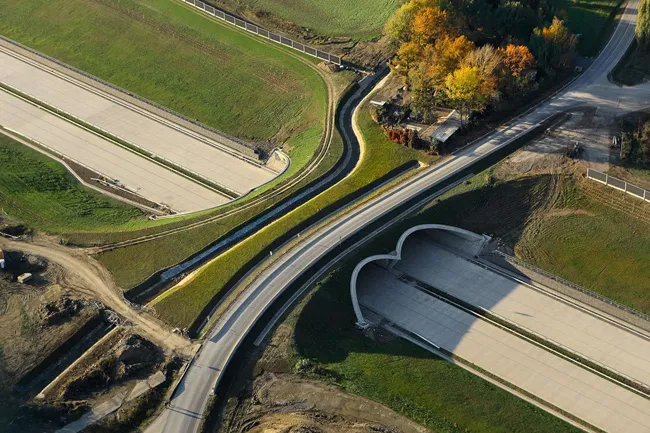Work on two sections of Poland's A2 highway originally planned to be built by the Chinese COVEC will now be constructed by two consortia.
February 27, 2012
Read time: 2 mins
Work on two sections of Poland's A2 highway originally planned to be built by the Chinese COVEC will now be constructed by two consortia. The Eurovia-Warbud consortium will build the 29km A section, which will cost €246.63 million. The 20km C section will be built by the Boegl & Krysl-DSS consortium and will cost €188.54 million. The contracts were awarded by the Polish General Directorate for National Roads and Motorways (1361 GDDKiA). The controversy over the A2 highway project continues however and 2487 COVEC is still fighting a legal battle with 1361 GDDKiA after having its contract cancelled. Meanwhile sub-contractors that were working for 2487 COVEC are still pressing for final payment for work that they carried out. At the same time, Poland's Ministry of Infrastructure is in talks with the 1166 European Bank for Reconstruction and Development (EBRD) and the 1054 European Investment Bank (EIB) as well as other financial institutions. The aim of the talks is to find solutions to highway financing issues, without increasing public debt. Before the end of 2011, two major highway tenders will be announced in Poland. One of these will be for work to the A2 highway between capital Warsaw and Poland's eastern border. The other will be for a 140km section of the A1 highway between Tuszyn and Pyrzowice. Experts say that the A1 project could be carried out under a public-private partnership (PPP) because the highway will carry heavy traffic volumes. A number of private partners have put themselves forward for this PPP proposal including Skanska and Meridiam.







